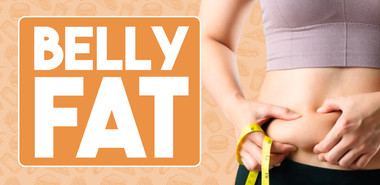
The conversation around health influencers taking cash to plug products just got a lot more interesting. You might’ve noticed the hashtag #safetyofaspartame popping up on your social feeds. This online chatter started after the World Health Organization came out with a report suggesting aspartame, a sweetener we often find in diet drinks, “might” be cancerous.
Soon after, a number of popular health and fitness influencers and dietitians took to social media platforms like TikTok and Instagram with posts claiming WHO’s warnings were basically sensational headlines without real substance.
How Much Trust Should You Put in #Sponsored Health Advice?
But here’s where things get interesting: these influencers weren’t just sharing their “expert opinion” for free. American Beverage, a big-time lobby group repping brands like Coca-Cola and PepsiCo, was actually footing the bill for these posts.
Dietitian Steph Grasso, for example, jumped on TikTok to tell her followers to ignore the “clickbait headlines,” insisting aspartame is A-OK. Another TikToker, Nicole, who calls herself a cancer dietitian, followed suit. She posted a video saying aspartame won’t raise your cancer risk one bit.
Then a month or so later, health and fitness influencers Sean Casey and Steve Kraft posted similar videos, but neither of their videos were flagged as sponsored content. Perhaps these really are their personal views/research into aspartame, but the timing is questionable.
Trust and Ethics in the Age of Influencers
Influencers often get free stuff or a nice paycheck for endorsing products. And generally, we trust them more than traditional ads. But there’s growing concern about the ethics of health professionals promoting products, especially when their paycheck might be guiding their advice more than genuine concern for our well-being.
What the Science Says: Are Sugar Alternatives Safe?
When it comes to aspartame and cancer, the WHO doesn’t exactly put it at the top of the risk chart. It’s not in the “definitely causes cancer” or “probably causes cancer” boxes. Instead, it hangs out with aloe vera, pickled veggies, and nickel in the “maybe, but we’re not sure” category.
As for the scientific answer, most studies haven’t pinned aspartame as a surefire cancer causer. There have been animal studies – namely carried out on rats – but the amounts given to these animals aren’t exactly to levels of human consumption. The amount of aspartame given to the rats was 4x its body weight.
Basically, an 80kg human could effectively drink 16 cans of diet soft drinks a day and still be within “safe” limits.
Still, there’s ongoing research into aspartame. A 2022 study involving over 100,000 French adults found that drinking artificial sweeteners might increase cancer risk. But again, ongoing research is needed before we all stop drinking diet soft drinks.
TLDR Version
What Happened?
The World Health Organization (WHO) made an announcement saying aspartame—a super common artificial sweetener—might cause cancer. This is the first time they’ve looked into aspartame specifically.
What’s the Classification?
WHO’s research arm, called IARC, slapped a “2B status” on aspartame. This is fancy talk for “we don’t have enough evidence to say it definitely causes cancer in humans, but we can’t rule it out, either.”
Who’s Behind the Info?
A pretty diverse group of 25 experts from 12 different countries weighed in. They pointed to three studies that linked aspartame to liver cancer, but also said, “Hey, these studies might have some issues.”
What’s the Daily Limit?
There’s another group, JECFA, that sets the daily limit for aspartame. According to them, you can have up to 16 cans of Diet Coke in a day if you weigh 80kg and still be within safe limits. But remember, aspartame isn’t just in soda—it’s in a bunch of other stuff too, like sugar-free gum, light yogurt, and even some meds.
What’s the FDA’s Take?
The U.S. Food and Drug Administration (FDA) isn’t buying what the WHO is selling. They think the studies WHO used have some big gaps and don’t support the idea that aspartame is a potential cancer causer. They also noted that JECFA, the group setting those daily limits, didn’t see any reason to change their guidelines based on the new info.
The FDA has stated: “Scientific evidence has continued to support the FDA’s conclusion that aspartame is safe for the general population when made under good manufacturing practices and used under the approved conditions of use.”
Common Everyday Products With Sugar-Free Alternatives
Wondering what else you might be eating that includes aspartame? Here are some everyday items that commonly feature aspartame.
Foods & Snacks:
- Chewing Gum: Many popular sugar-free gums use aspartame.
- Sugar-Free Jellies & Jams: A breakfast staple for some.
- Yogurt: Especially in ‘light’ or ‘diet’ varieties.
- Pudding: You’ll find aspartame in some sugar-free options.
- Cereal Bars: Some sugar-free or low-calorie bars include it.
- Meal Replacement Shakes: Certain brands go the aspartame route.
Drinks:
- Diet Soda: The big ones like Diet Coke and Diet Pepsi use it.
- Flavoured Water: Some zero-calorie flavoured waters feature aspartame.
- Iced Tea: Sugar-free or diet versions often have it.
- Fruit Juices: Watch out for ‘light’ or ‘reduced calorie’ labels.
- Energy Drinks: Yep, you’ll find it in some sugar-free versions.
- Coffee Syrups: Some sugar-free syrups for your coffee can contain aspartame.
Miscellaneous:
- Condiments: Things like sugar-free ketchup or salad dressing might use it.
- Sweetener Packets: Those blue packets on the cafe table? Likely aspartame.
- Desserts: Ice cream, sugar-free cookies, and sugar-free Jelly often include it.
So, the next time you’re scrolling through your feed, remember to take those health tips with a grain of salt, especially if there’s a #sponsored or #ad tag hanging around. Because, let’s face it, that “unbiased” health advice might just be someone’s paycheck talking.
If you care about what you’re putting into your body (and you should!), it’s always a good idea to do your own research and consult trusted health experts.
READ MORE:



